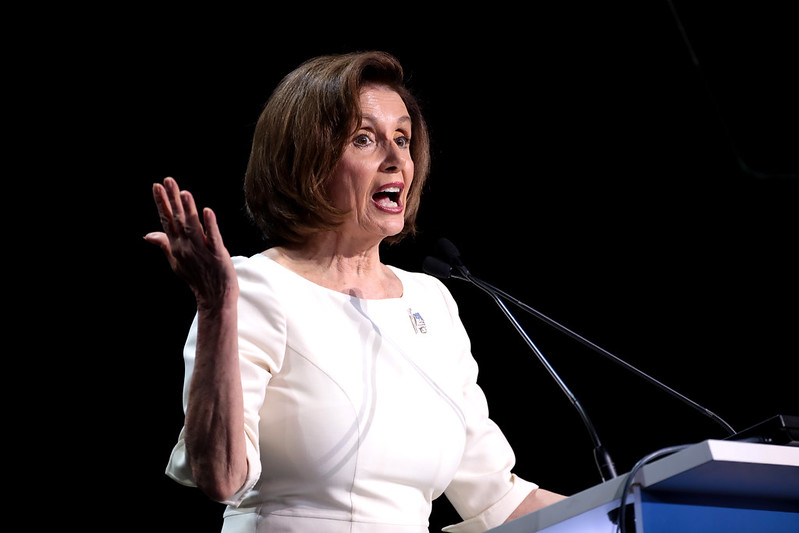
Rather than pushing policies that will help the economy recover, the top priority for Congressional Democrats is legislation that will dramatically alter the American political system and consolidate power in the hands of the Left.
This legislation, designated H.R.1 in the House and S. 1 in the Senate, has been given the misleading name “For the People Act.” This proposal would fundamentally transform how elections are conducted in the United States, would politicize the Federal Elections Commission, and would directly violate constitutional mandates like free speech and states’ freedom to determine their own election laws.
This 800 page bill is packed with alarming proposals that should be rejected by Congress. Here are five reasons to oppose H.R. 1.
1) H.R. 1 Shows Democrats Care About Consolidating Power More Than Rebuilding the Economy. Each Congress, “H.R. 1” or” S. 1” is reserved for whatever bill is the biggest priority for the party that controls the House or Senate. At a time where millions of Americans are out of work, it is telling that Democrats’ priority is to overhaul election law. This policy would do nothing to help the economy recover or to help the country fight the Coronavirus pandemic.
2) H.R. 1 Would Politicize the Federal Elections Commission (FEC). Under current law, the FEC is comprised of a six-member bipartisan committee: three Republicans and three Democrats. In order to move forward with any prosecution of alleged campaign violations or investigations, the FEC needs four votes. This law would limit the member number to five, therefore including two Republicans, two Democrats, and one “independent” from a minor political party. Under this rule, a president could appoint a Bernie Sanders-style “independent” to serve as the fifth member of the FEC. To make matters worse, under this law, a president could also pick the Chairman of the FEC, all but ensuring total presidential control of the Commission.
3) H.R. 1 Creates Taxpayer-Funded Candidates. The legislation implements a 600% match for certain political contributions to congressional and presidential candidates, forcing taxpayers to subsidize political campaigns – even campaigns that they may disagree with. Provisions like this have been abused in the past several times. In addition to being a poor use of taxpayer money, this attempt to end political corruption actually creates greater opportunity for corruption.
4) H.R. 1 Would Invalidate Numerous State Election Laws. Article I Section IV of the U.S. Constitution empowers states to determine the “Times, Places and Manner of holding elections…” H.R. 1 would make significant strides in stripping states of this power. It would force states to implement early voting, automatic voter registration, same-day registration, online voter registration, and no-fault absentee balloting. Additionally, the bill would invalidate voter identification laws all across the country by allowing voters to simply sign a statement affirming their identity as they enter their polling place.
5) H.R. 1 Would Suppress Free Speech. This law would implement a “public file” requirement for any person or organization spending over $500 in a calendar year, forcing them to identify the name, address, and contact information of ad sponsors that are not candidates or with the campaign. It also invents a new regulation called “PASO,” an overbroad standard that asks whether political speech “promotes,” “attacks,” “supports,” or “opposes” a candidate or official.
In addition, H.R. 1 undoes the FEC’s “internet exemption” which excludes the internet from regulation of political speech, exposing online communication to the same scrutiny as traditional advertisements. This even includes any communication an organization makes on social media platforms like Twitter and Facebook, including paid staffers managing the platforms. The bill expands the “stand by your ad” disclaimer in video advertisements, forcing organizations to identify their top five donors at the end of advertisements. With the incredible rise in partisanship, cancel culture, and doxing, it is more important than ever to protect donor privacy. This isn’t a matter of transparency; rather, it is a new tool to chill speech.
H.R. 1 is a dangerous piece of legislation. This legislation would suppress free speech, invalidate state laws, create taxpayer-funded candidates, and do nothing to help the economy or fight the Coronavirus pandemic. This Democrat power grab should be rejected.

